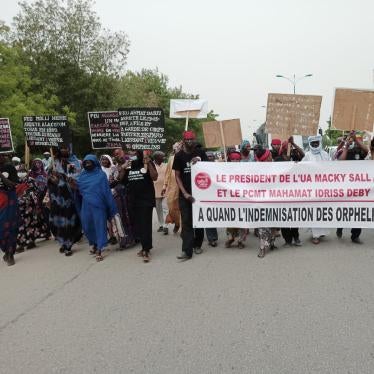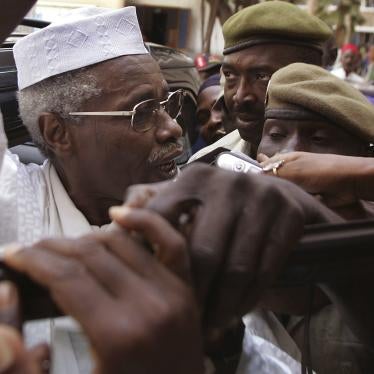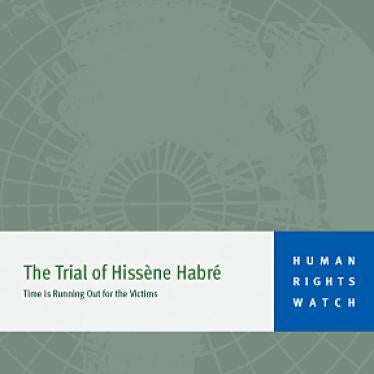(Geneva) - The United Nations Committee against Torture has called on Senegal to comply with its "obligation" to prosecute or extradite Chad's exiled former dictator, Hissène Habré, Human Rights Watch said today.
The Committee's action came in response to a statement by President Abdoulaye Wade of Senegal that he had "had enough" of the Habré case and was "going to get rid of him."
"The UN has stood up for Habre's thousands of victims who have been seeking justice from Senegal for 20 years," said Reed Brody, counsel with Human Rights Watch, who represents the victims before the UN Committee against Torture. "President Wade can't simply ‘get rid' of the case; he has a legal obligation to ensure that Habré faces justice."
The United Nations Committee against Torture consists of 10 experts elected by the 147 states that have ratified the UN Convention against Torture. In 2006, the committee found Senegal in breach of its legal duty to bring Habré to justice. In a letter to Senegal dated January 12, the committee's rapporteur, Fernando Mariño, recalled that decision and said that if Senegal was not going to prosecute Habré, it must, under the convention, extradite him to Belgium or another country which will prosecute him.
Habré is accused of thousands of political killings and systematic torture when he ruled Chad, from 1982 to 1990, before fleeing to Senegal.
Senegal had been putting off Habre's trial for years, saying it would not proceed until it received international funding for anticipated trial costs. A November 18 ruling of the Court of Justice of the Economic Community of West African States (ECOWAS) said that Senegal should prosecute Habré before a special jurisdiction. On November 24, international donors met in Dakar and fully funded the $11.7 million budget for the trial. Senegal's justice minister said that the donors' meeting was the "completion of the long process of preparation leading up to the actual start of trial" and that Senegal would discuss with the AU how to respond to the ECOWAS decision.
President Wade then appeared to backtrack yet again. On December 10, he announced that, "The African Union must take its case back..... Otherwise I will send Hissène Habré elsewhere. ...I've had enough of it at this point. ....I am going to get rid of him, full stop."
On January 12, an African Union delegation led by AU Commissioner for Peace and Security Ramtane Lamamra presented President Wade with a cost-neutral plan to respond to the ECOWAS decision by creating a special jurisdiction within the Senegalese justice system which would include the nomination of two judges by the AU.
On January 13, however, President Wade told the Council of Ministers that he was "returning" the Habré case to the African Union.
In the letter, the UN rapporteur said that, finally, "financing is today at [Senegal's] disposition, thanks to the raising of funds from many sources," and that, "the Committee wishes therefore to remind [Senegal] of its obligation under the Convention against Torture, to submit the case to its competent authorities for the purpose of prosecution or failing that, since Belgium has made an extradition request, to comply with that request" or another extradition request made pursuant to the convention.
The African Union is scheduled to discuss the Habré case at its summit in Addis Ababa, Ethiopia, on January 30 and 31.
In July 2010, Archbishop Desmond Tutu and 117 groups from 25 African countries denounced the "interminable political and legal soap opera" to which the victims had been subjected over 20 years.
"If President Wade has ‘had enough,' how does he think that we feel?" said Souleymane Guengueng, who was mistreated during 27 months in Habré's prisons and who founded an association of victims to seek justice. "We've had enough. We want justice now!" It was Guengueng's complaint that led to the committee's ruling against Senegal in 2006.







